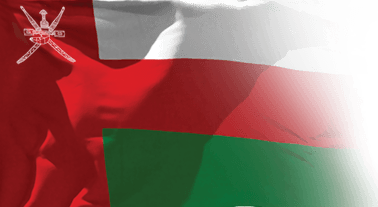
IMF expects continued economic growth in Oman
The International Monetary Fund (IMF) indicated the continued positive economic growth in Oman as real GDP grew by 1.3 percent in 2023 supported mainly by the expansion in non-oil activities.
The IMF mission concluded its preliminary meetings with Oman’s government during the period from 30 April to 8 May 2024 within the framework of Article IV consultations for the year 2024.
The Fund’s team and Oman’s representatives discussed the most prominent recent economic and financial developments, the economic prospects in the near and medium term in light of regional and international developments and Oman’s public policy priorities.
Economic growth is to remain moderate at 0.9 percent in 2024, as a result of extending the OPEC+ agreement on oil production cuts until the first half of this year, however it is expected to accelerate to 4.1 percent in 2025 as a result of the recovery of oil activities in addition to the expected relaxation of restrictions imposed on OPEC+ quotas.
The mission statement also indicated that the growth of non-oil activities is expected to accelerate to 2.6 percent in 2024 and 3.2 percent in 2025 as a result of the government’s commitment to the reform plan and investment projects, compared to the growth recorded in 2023, which was 2.1 percent.
The mission affirmed that the ongoing reform efforts and the continued favourable oil prices enhanced the public finance balance and the external account balance, as the fiscal balance recorded a surplus of 6.6 percent of the GDP in 2023. The surplus balance is expected to continue in the medium term supported by favourable oil revenues, growing non-oil revenues and continuing financial control efforts.
In addition, the mission indicated that the level of public sector debt as a percentage of GDP decreased significantly to 36.5 percent in 2023, compared to 40.9 percent in 2022, as the government continued to use part of the financial surplus to repay public debt.
The level of State-owned enterprises (SOEs) debt stabilised at around 31 percent of GDP.
The mission also praised the continued efforts in implementing the plan to reform SOEs affiliated with the Oman Investment Authority (OIA) as planned, which resulted in the completion of 9 sales operations in 2023 with a profit estimated at approximately $3 billion.

As for the external balance, the mission stated that the current account balance showed a surplus of 1.4 percent of GDP in 2023 and is expected to remain in surplus in the medium-term.
Despite the reduction in leverage ratios in the public sector, the total international reserves at the Central Bank of Oman (CBO) reached $17.5 billion in 2023 buoyed by a significant increase in Foreign Direct Investment (FDI).
In its statement, the Fund’s mission emphasised the solidity of the banking sector noting the high levels of bank capital, liquidity and profitability along with strong asset quality.
In December 2023, the net foreign assets of banks became positive for the first time since 2014 as a result of an increase in investments in foreign securities.
The statement praised the structural reforms currently underway, which include implementing social protection and labour laws, making progress in selling state companies, reducing debt and investing in climate-related initiatives to achieve renewable energy and green hydrogen targets in the medium term.
Among the government’s priorities, as mentioned in the statement, are improving tax administration, continuing to simplify financial expenditures, strengthening the medium-term financial framework, facilitating financing for SMEs and accelerating digital transformation.


